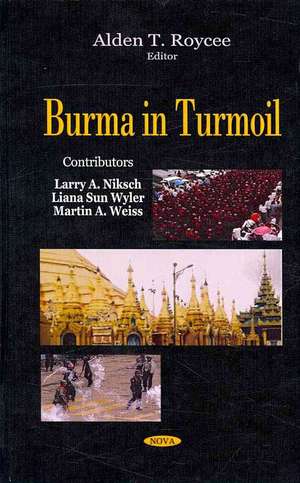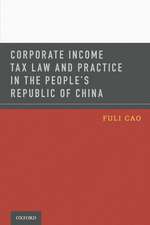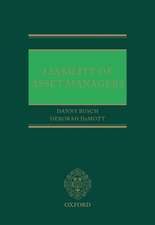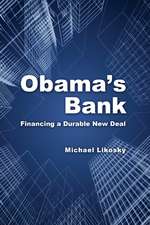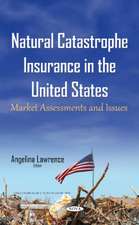Burma in Turmoil
Editat de Alden T. Royceeen Limba Engleză Hardback – 26 mai 2008
Preț: 475.67 lei
Preț vechi: 649.59 lei
-27% Nou
Puncte Express: 714
Preț estimativ în valută:
91.02€ • 95.03$ • 75.33£
91.02€ • 95.03$ • 75.33£
Carte disponibilă
Livrare economică 14-28 martie
Preluare comenzi: 021 569.72.76
Specificații
ISBN-13: 9781604563115
ISBN-10: 1604563117
Pagini: 105
Ilustrații: b/w photos
Dimensiuni: 160 x 232 x 13 mm
Greutate: 0.32 kg
Editura: Nova Science Publishers Inc
ISBN-10: 1604563117
Pagini: 105
Ilustrații: b/w photos
Dimensiuni: 160 x 232 x 13 mm
Greutate: 0.32 kg
Editura: Nova Science Publishers Inc
Cuprins
Preface; Burma-U.S. Relations; Burma and Transnational Crime; Burma Country Profile; Burma Sanctions: Background and Options; Special Bibliography; Index.
